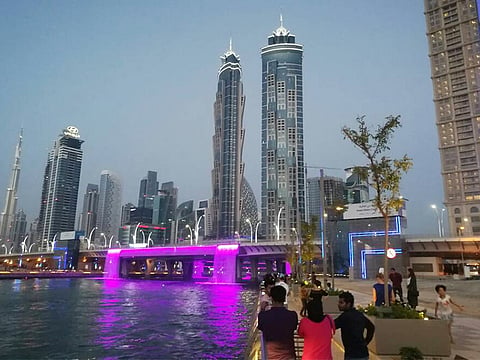Low down payments are not the answer
Buyers paying low upfront payments have ‘little skin in the game’, says JLL

DUBAI: With more and more of developers’ payments plans starting to look alike, warning signs are starting to flash in Dubai’s property market. It will do good for everyone in the real estate sector to start heeding the signals, according to a senior official at JLL, the consultancy.
“Someone could buy a property putting in a token down payment, of even less than 5-10 per cent,” said Craig Plumb, Head of Research at JLL’s regional operations. “There is very little skin in the game from buyers - in many ways it’s fairly similar to what was happening in 2007-08. And everyone knows how that turned out.”
All through 2017, the majority of freehold transactions in Dubai involved off-plan properties, and the bulk of them scheduled for delivery by 2019-20. Or even later.
Plumb’s concerns - and these are shared by some of Dubai’s leading developers - is that if a good number of such buyers stopped making their subsequent payments, it could set off panic alarms for the entire industry.
“In 2008, there were global issued that triggered the real estate market crisis here,” said Plumb. “That’s probably not the case now - the local economy’s still growing and that’s a big positive..”
Also, the property market itself could make the necessary adjustments well before problems start showing up. One way would be for buying to balance itself out between off-plan and ready properties, rather than be skewed towards the former, which was the case in 2017 and even in the second-half of 2016. “We expect a better balancing to happen this year,” said Plumb.
Certainly, in Q4-17, some of that shift was visible, though only marginal. There was a fair bit of interest centred on existing properties on the Palm and Emirates Hills, and that in turn also pushed up the average transaction values during the period.
For 2018, JLL is projecting about 20,000 units could actually be delivered as opposed to the 35,000 homes that developers had promised. If this proves the case, it would be in line with the handover rates of the last three to four years.
“Not too much of new supply coming in all at the same time is a good thing,” said Plumb. “But developers should still be asking themselves why they cannot keep up with their promises. And why the handover delays still happen.”
There still isn’t that much of mortgage activity in the freehold space, now at about 30 per cent. And even with mortgage rates rising through the year - in line with US rate hikes - it need not have that much of an impact on the deal side. Moreover, more developers are offering interest-free payment plans for their off-plan launches, and that will make it less likely for property buyers to head to the bank for a mortgage.
As for trends in Abu Dhabi, the fact that developers there have not had too many off-plan releases last year - and probably even in this one - is a good thing. It will give that market the benefit of more time to adjust between supply and demand. “Abu Dhabi property will be unexciting in terms of launches… but that’s what the market needs at the moment,” Plumb said.
The likely shape of UAE’s property market this year
* Offices: In Dubai, office vacancy rates will be flat, but in Abu Dhabi and Sharjah, chances are that this could increase further this year, according to JLL. And landlords with office properties should be careful about making too many demands on their tenants. Most businesses are looking to reduce costs and they are not going to be receptive to higher rent demands.
* The VAT effect: JLL do not see VAT as being a “market mover” in UAE’s property market. But it will have an impact on retail, and retailers may have to absorb some of the VAT costs not to put off their shoppers.
Construction - More projects will be awarded, but some could be scaled down to realistic levels.



